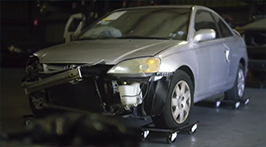The current recall system was established in the 1970s, and has only been subject to minor tweaks over the last 40 years. As a result, the regulations currently only require snail mail notification to consumers. This notice typically comes in the form of a small, inconspicuous card, and is all-too-often mistaken for junk mail.
During that same 40-year time frame, communications technology has revolutionized the way companies interact with the public. When auto manufacturers want to advertise their new cars, they can instantly communicate with their prospective audience via emails, smart phone applications and other forms of instant digital transmission.
In addition, vehicles today are become mobile communications devices due to the rapidly expanding field of telematics. These telematics devices can be used to relay communications through a consumer’s GPS, radio, and other infotainment devices.
As a result, manufacturers now have a wide array of inexpensive options to instantly and effectively communicate with consumers. The recall system should reflect today’s technology, and not rely only upon snail mail to communicate critical life-saving messages.
Tell Congress to Reform the Recall System
Now is the time for Congress to make meaningful, bipartisan reforms to the broken and outdated automotive recall system.
Over the past several years, consumers have suffered needless injuries and deaths as a result of defects like those seen in the Takata and GM ignition recalls. These injuries and deaths could have been easily avoided if the consumers were properly warned about the need to have their vehicles repaired.
The current recall system was put in place decades ago, and has never been updated to reflect modern technological advances. A few simple, cost effective changes could bring the recall system into the 21st century. And save lives as a result.
Please sign this petition and ask Congress to reform the recall system by mandating:
- Better defect notices to consumers;
- Clear benchmarks for recall completion rates; and
- Penalties for failing to meet recall completion rate benchmarks.
